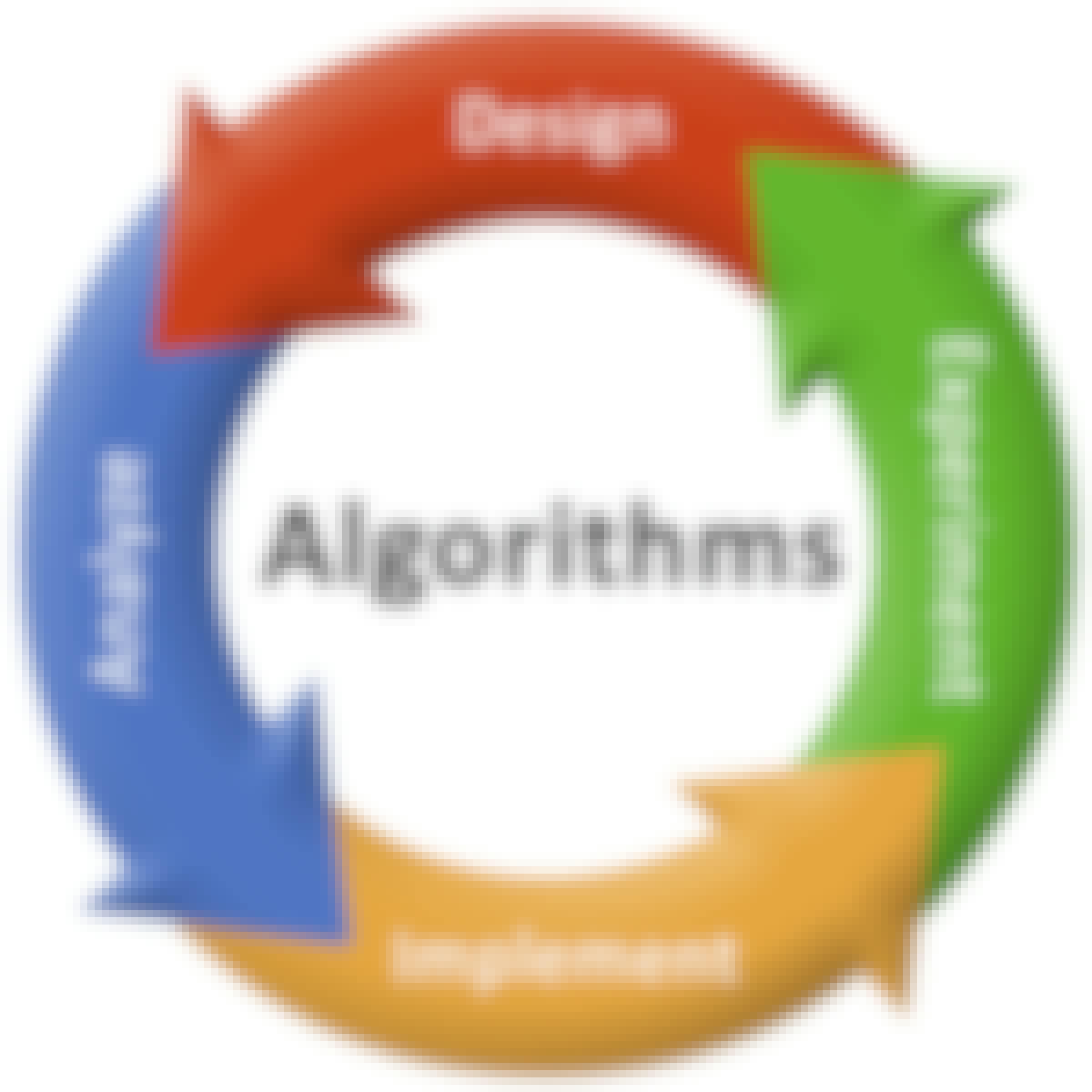Filter by
SubjectRequired
LanguageRequired
The language used throughout the course, in both instruction and assessments.
Learning ProductRequired
LevelRequired
DurationRequired
SkillsRequired
SubtitlesRequired
EducatorRequired
Explore the Computational Investing Course Catalog
 Status: Free Trial
Status: Free TrialStanford University
Skills you'll gain: Data Structures, Graph Theory, Algorithms, Network Model, Network Analysis, Computational Thinking, Theoretical Computer Science, Network Routing
 Status: Free Trial
Status: Free TrialDuke University
Skills you'll gain: Programming Principles, Algorithms, Pseudocode, Computational Thinking, Computer Programming, Data Structures, Software Testing, Debugging
 Status: Free Trial
Status: Free TrialUniversity of Pennsylvania
Skills you'll gain: Data Structures, Programming Principles, Python Programming, Computer Programming, Computational Thinking, Scripting, Software Development Tools, Integrated Development Environments, Data Import/Export, Jupyter, File Management

University of Illinois Urbana-Champaign
Skills you'll gain: Time Series Analysis and Forecasting, Portfolio Management, Financial Forecasting, Financial Analysis, Analytics, Financial Trading, Financial Market, Performance Analysis, Statistical Analysis, Investment Management, Risk Management, Regression Analysis, Algorithms
 Status: Free Trial
Status: Free TrialEDHEC Business School
Skills you'll gain: Investment Management, Portfolio Management, Asset Management, Machine Learning, Applied Machine Learning, Financial Modeling, Supervised Learning, Predictive Modeling, Risk Management, Feature Engineering, Unsupervised Learning, Regression Analysis, Statistical Methods, Dimensionality Reduction
 Status: Free Trial
Status: Free TrialNew York University
Skills you'll gain: Supervised Learning, Applied Machine Learning, Machine Learning, Statistical Methods, Artificial Neural Networks, Predictive Modeling, Scikit Learn (Machine Learning Library), Regression Analysis, Deep Learning, Financial Services, Finance, Tensorflow, Jupyter, Reinforcement Learning
 Status: Free Trial
Status: Free TrialNew York University
Skills you'll gain: Supervised Learning, Dimensionality Reduction, Unsupervised Learning, Applied Machine Learning, Machine Learning Algorithms, Decision Tree Learning, Machine Learning, Predictive Modeling, Financial Trading, Financial Market, Reinforcement Learning, Scikit Learn (Machine Learning Library), Correlation Analysis, Exploratory Data Analysis, Portfolio Management, Python Programming, Artificial Neural Networks, Jupyter
 Status: Free Trial
Status: Free TrialUniversity of Pennsylvania
Skills you'll gain: FinTech, Credit/Debit Card Processing, Financial Services, Payment Processing, Investment Management, Technology Strategies, Asset Management, Wealth Management, Environmental Social And Corporate Governance (ESG), Financial Regulations, Entrepreneurial Finance, Entrepreneurship, Innovation, Consumer Behaviour
 Status: Free Trial
Status: Free TrialNew York University
Skills you'll gain: Reinforcement Learning, Financial Trading, Financial Market, Derivatives, Markov Model, Financial Modeling, Securities Trading, Portfolio Management, Risk Management, Market Dynamics, Machine Learning, Estimation
 Status: Free Trial
Status: Free TrialUniversity of Pennsylvania
Skills you'll gain: Demography, Philanthropy, Return On Investment, Market Trend, Environmental Social And Corporate Governance (ESG), Corporate Sustainability, Project Scoping, Trend Analysis, Entrepreneurship, Strategic Leadership, Business Transformation, Feasibility Studies, International Relations, Business Ethics, Needs Assessment, Socioeconomics, Risk Control, Compliance Management, Governance, Ethical Standards And Conduct
 Status: Free Trial
Status: Free TrialUniversity of Colorado Boulder
Skills you'll gain: Field-Programmable Gate Array (FPGA), Hardware Design, Electronic Hardware, Electronic Systems, Embedded Systems, Application Specific Integrated Circuits, Electrical and Computer Engineering, Schematic Diagrams, Technical Design, System Design and Implementation, Computer Architecture, Software Design, Hardware Architecture, Microarchitecture, Computational Logic, System Configuration, Verification And Validation, Design Software, Simulation and Simulation Software, Prototyping

The University of Edinburgh
Skills you'll gain: Software Engineering, Video Game Development, Software Testing, Software Development, Programming Principles, Software Design, Game Design, Computer Programming, Animation and Game Design, Debugging, Computational Thinking, Algorithms
In summary, here are 10 of our most popular computational investing courses
- Graph Search, Shortest Paths, and Data Structures: Stanford University
- Programming Fundamentals: Duke University
- Introduction to Python Programming: University of Pennsylvania
- Applying Data Analytics in Finance: University of Illinois Urbana-Champaign
- Python and Machine Learning for Asset Management : EDHEC Business School
- Guided Tour of Machine Learning in Finance: New York University
- Fundamentals of Machine Learning in Finance: New York University
- FinTech: Foundations, Payments, and Regulations: University of Pennsylvania
- Reinforcement Learning in Finance: New York University
- Business Strategies for A Better World: University of Pennsylvania










